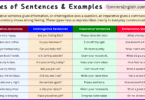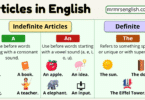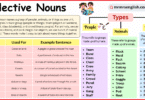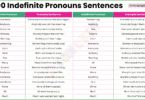What Are Adverbs of Duration?
Adverbs of duration describe the length of time an action lasts or will last. They help answer the question “For how long?” in relation to a verb. By using adverbs of duration, you can express whether something lasts for a short, medium, or long period of time.
For example:
- He stayed all day at the park.
- They lived in Spain for two years.
These adverbs provide clarity on the timeframe of actions and are used in both spoken and written English.
Common Adverbs of Duration
Here’s a table that lists some of the most common adverbs of duration and how they are used in sentences:
| Adverb of Duration | Example Sentence |
|---|---|
| All day | She worked on the project all day. |
| For a while | He rested for a while after the game. |
| Forever | The memory will last forever. |
| Briefly | They spoke briefly before the meeting started. |
| For a year | He studied abroad for a year. |
| For hours | They talked for hours last night. |
| Since | She’s been learning English since last summer. |
| For a moment | The phone rang for a moment and then stopped. |
Placement of Adverbs of Duration in Sentences
1. At the end of a sentence
In most cases, adverbs of duration appear at the end of the sentence, modifying the verb.
- Example: I waited for an hour.
2. Before the verb (for emphasis)
Sometimes, especially for emphasis, adverbs of duration can be placed before the verb.
- Example: He briefly stopped by the store.
Note: Some adverbs of duration, like “since” or “for,” often come after a time expression, making them flexible in usage.
How to Use Adverbs of Duration in Different Tenses
Adverbs of duration can be used in various tenses, whether you’re talking about the present, past, or future.
Present Tense:
- Example: She has been studying for two hours.
Past Tense:
- Example: They lived in Paris for three years.
Future Tense:
- Example: I will wait for a few minutes.
Adverbs of duration give you flexibility in expressing actions across different timeframes.
Adverbs of Duration vs. Other Types of Adverbs
Adverbs of duration specifically answer the question of how long, which makes them different from other adverbs that might describe how, when, or where something happens. For clarity, here’s a comparison between adverbs of duration and other adverbs:
| Type of Adverb | Function | Example Sentence |
|---|---|---|
| Adverb of Duration | Describes how long an action takes | She worked for hours. |
| Adverb of Manner | Describes how an action is done | He spoke softly. |
| Adverb of Time | Describes when something happens | They arrived yesterday. |
| Adverb of Place | Describes where something happens | He lives nearby. |
Understanding the distinction between different types of adverbs is essential for advanced learners who want to improve their grammatical accuracy.
Advanced Use of Adverbs of Duration
As you become more comfortable with English, you’ll find that adverbs of duration can be combined with other grammatical structures to add complexity to your sentences.
Combining Adverbs of Duration with Prepositional Phrases
- Example: He stayed in the library for hours before the exam.
In this example, the adverb of duration (for hours) is used with the prepositional phrase (in the library) to give more information about where and how long the action took place.
Using Adverbs of Duration with the Perfect Tense
Adverbs of duration are often used with the perfect tense to describe actions that started in the past and are still happening or have recently finished.
- Present Perfect Example: She has lived here for five years.
- Past Perfect Example: By the time he arrived, they had been waiting for two hours.
Common Mistakes with Adverbs of Duration
1. Overusing adverbs of duration
Some learners tend to overuse certain adverbs like “forever” or “all day.” It’s important to choose the right adverb of duration to match the timeframe you want to describe.
2. Incorrect placement
Placing the adverb of duration in the wrong part of the sentence can change the meaning. Always ensure the adverb modifies the correct verb.
3. Confusing adverbs of time with adverbs of duration
Adverbs of time (e.g., “yesterday,” “tomorrow”) describe when an action happens, while adverbs of duration (e.g., “for hours,” “forever”) describe how long it happens.
Adverbs of Duration Examples
| Sentence | Adverb of Duration |
|---|---|
| She waited all day for the bus. | All day |
| They lived in this city for ten years. | For ten years |
| I studied for two hours before the exam. | For two hours |
| He will stay with us for a week. | For a week |
| They talked on the phone for a while. | For a while |
| We have been friends for many years. | For many years |
| He slept for eight hours last night. | For eight hours |
| The concert lasted for three hours. | For three hours |
| They waited in line for thirty minutes. | For thirty minutes |
| She has been working here since last year. | Since last year |
| I will be away for a few days. | For a few days |
| He stayed at the party all night. | All night |
| They studied together for a long time. | For a long time |
| I have been learning English for two years. | For two years |
| We have been sitting here for hours. | For hours |
| He will live in London for a month. | For a month |
| The movie lasted for two and a half hours. | For two and a half hours |
| She has been in the hospital since Monday. | Since Monday |
| They stayed up all night working on the project. | All night |
| I’ll stay here for just a moment. | For just a moment |
Adverbs of duration List
- All day
- For a while
- Forever
- Briefly
- For a year
- For hours
- Since
- For a moment
- All night
- For several days
- Temporarily
- For centuries
- For months
- Since yesterday
- For a few minutes
- For ages
- For weeks
- Indefinitely
- For a lifetime
- For decades
- For an hour
- For the entire day
- For a few hours
- For a second
- For a long time
- For a short time
- For days
- For a month
- Constantly
- For two years
Learn Also:











Leave a Comment